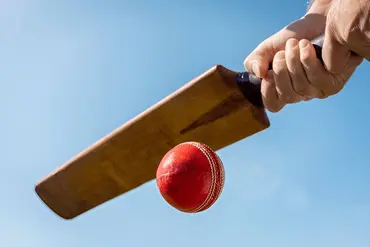How much of cricket is mental-and how can coaching strengthen that mindset?
Let's be real. Cricket is a mental marathon disguised as a sport. Sure, there's technique. Fitness. Strategy. But when you're out there, alone under the sun, with thousands watching-or none at all-it's your mind that either carries you... or crumbles.
Mental strength isn't just about "being confident." It's about staying grounded when you've been hit for two boundaries in a row. It's about calming your nerves when the required run rate is climbing. And most importantly, it's abouttrusting your preparation when doubt creeps in.
Coaching builds that mental resilience through routine, reinforcement, and relentless belief. From visualization drills to pressure simulations, good coaches don't just shape technique-they shape temperament.
Because at the end of the day, it's not just about how you swing the bat or release the ball. It's about how youcarry your head and your heartthrough every over.

Why is nutrition such a big deal for cricketers-and what's often overlooked?
You wouldn't fill a sports car with cheap fuel and expect it to run like a dream, right? Your body works the same way.
Cricketers-especially youngsters-often overlook just how vital nutrition is. It's not just about "eating healthy." It's abouteating smart. Fueling for energy, hydration, muscle repair, and stamina.
Coaches and trainers often emphasize pre-match carbs, during-match electrolytes, and post-match proteins. But what's often missed?Consistency.Eating well only on match day is like revising only on exam day. It just doesn't work.
Good coaching teaches athletes to listen to their bodies. What energizes them. What slows them down. When to eat, what to eat, and-most importantly-why it matters.
Nutrition might not win matches on its own. But poor nutrition? Oh, it can definitely lose them.
Do pre-game rituals really help, or are they just superstition?
Oh, you'd be surprised how powerful a simple ritual can be. Some players always put on their left pad first. Others whisper a silent prayer. A few just bounce the ball twice before bowling. Are these habits magical? Not really. But are they powerful? Absolutely.
Pre-game rituals give players a sense of control in a game filled with variables. They anchor the mind. Signal the body. Cue the focus. Think of them like warm-up songs for the brain.
Coaches encourage players to find routines thatcenter them, rather than distract them. A quick jog. A visualization cue. A pep talk. The trick is to turn ritual into rhythm-not reliance.
Because superstition may not win matches? butconsistency and mental clarity just might.
How should young players deal with failure on the field?
Failure is stitched into cricket's DNA. Even the greatest batters in history have scored ducks. Bowlers have been smashed. Fielders have dropped match-winning catches. It happens.
The real question isn'tifyou'll fail-it'show you'll bounce back.
That's where coaching becomes therapy. A coach isn't just there to correct your front foot movement. They're there when your shoulders slump, when your eyes well up, when you want to quit. A good coach says, "One match doesn't define you." A great one? They help youlearn from it without losing yourself.
Failure is feedback. That's it. It stings-but it also teaches. And cricket, like life, rewards those who show up the next day, ready to try again.
How important is team chemistry-and can coaching influence it?
You could have the five best players in the world, but if they don't trust each other? the team falls apart. Cricket isn't just eleven individuals-it'sone unit moving in rhythm.
Team chemistry isn't built overnight. It's built in huddles, after defeats, during practice drills, in shared laughter, and yes, sometimes in awkward team dinners.
Coaches play a massive role in this. They watch how players interact. They notice who's isolating themselves, who lifts others up, who brings energy. Then they create environments whereego steps aside and collaboration takes over.
Because when players believe in each other, support each other, and fight for each other-magic happens.
 Uppal, Gachibowli , hyderabad, Telangana, IndiaIam venkata siva i did Bped at YMCA Bangalore Central University.......
Uppal, Gachibowli , hyderabad, Telangana, IndiaIam venkata siva i did Bped at YMCA Bangalore Central University.......

